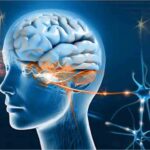Thereby, alcohol effects on 5-HT activity depended on sex/gender and on the emotional traits of an organism, which supports the role of alcohol in personality trait self-management 201, 202. The acute 5-HT increase, which is a crucial mechanism for the learning of alcohol seeking and consumption, may contribute to the subsequent degree of preference and the use of alcohol for self-management of negative affective states 22, 92. Individuals in adult and old age with pain conditions of various origins use alcohol to ease suffering from pain 162,163,164. Patients with fibromyalgia who consumed alcohol at moderate to low levels to self-medicate showed lower levels of symptoms and a better physical quality of life than non-drinkers 165, 166.
How can colleagues and family members support a first responder struggling with alcohol use?
However, it should also be noted that the use of alcohol may cause or aggravate psychiatric disorders, resulting in a comorbidity with AUD. As a personality trait, social anxiety arises in adolescence and persists through adulthood. When inappropriate, it can lead to social inhibition and avoidance of social interactions up to self-isolation.
Mood and stress disorders
Since some strategies taught in treatment are more effective in preventing relapse than others, treatment may be improved Oxford House by focusing on these specific strategies. Since results may be limited to this population, replication is needed in more diverse settings and without medication. Our virtual IOP program offers the same programming that we offer in person, all online – this is ideal for those who live too far to drive to an addiction center, have transportation issues, or have health concerns that make in-person treatment challenging. Our virtual IOP program offers the same programming that we offer in person, all online—this is ideal for those who live too far to drive to an addiction center, have transportation issues, or have health concerns that make in-person treatment challenging.
The role of substance use coping in linking depression and alcohol use from late adolescence through early adulthood

In fact, alcohol abuse induces and exacerbates the symptoms of such disorders, making them more difficult to manage or respond to treatment. In times of crisis, it’s relatively common for people to use alcohol as a coping mechanism. It’s not surprising that with the COVID-19 pandemic, off-premise alcohol sales were up 55%, while online alcohol sales rose 243%. Research shows that alcohol abuse disorders tend to increase during crises and uncertainty. The present and ongoing study aims to fill this research gap by conducting an experimental laboratory design to investigate the underlying mechanisms of the association between stress and alcohol consumption (MESA) in the at-risk population of young men.
- If true, this limitation would underestimate the current strength of association between MD/AD and SM.
- The most widely instrumentalized drug for self-management is alcohol (ethanol) 3,4,5,20,21,22.
- While a plethora of studies have revealed now how alcohol affects brain function 9, it might be important to consider that this picture reveals mainly the alcohol interaction with a healthy brain that is not under allostatic load.
- Alcohol became the answer to all of your problems, bringing both positive and negative emotions.
- First responders operate in environments where high-stakes emergencies are a constant reality.
Getting help with addiction
We do not receive any commission or fee that is dependent upon which treatment provider a caller chooses. This may mean that you struggle to cut it out completely or reduce your consumption, or that you struggle to stop at just one drink. I know it’s not great but there is a release in doing that which helps me to temporarily forget my problems and worries.

Alcohol may initially provide temporary relief from stress and trauma, but it can quickly become a problematic coping mechanism. It can lead to dependency, exacerbate mental health issues, and interfere with personal and professional responsibilities. First responders like paramedics, police officers, and ER doctors frequently encounter what has been termed as “cumulative stress bombs”. These are incidents that accumulate over time, potentially leading to cumulative PTSD and other long-term psychological impacts. Recognizing these effects alcohol as a coping mechanism is the first step towards developing healthier coping mechanisms and supporting those who face them daily.








